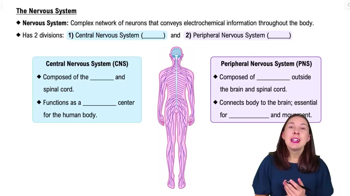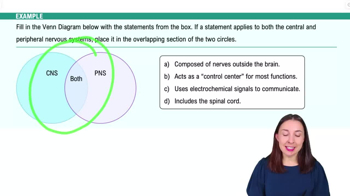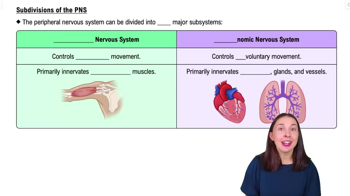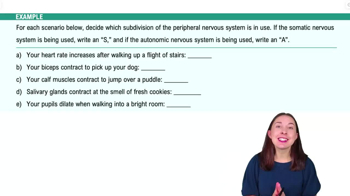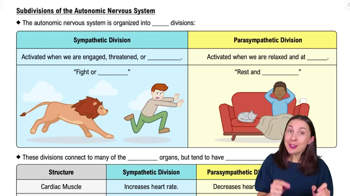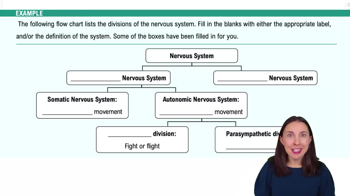Table of contents
- 1. Introduction to Psychology1h 43m
- 2. Psychology Research2h 20m
- 3. Biological Psychology2h 41m
- 4. Sensation and Perception28m
- 5. Consciousness and Sleep32m
- 6. Learning41m
- 7. Memory34m
- 8. Cognition37m
- 9. Emotion and Motivation35m
- 10. Developmental Psychology33m
- 11. Personality48m
- 12. Social Psychology41m
- 13. Stress and Health41m
- 14. Psychological Disorders44m
- 15. Treatment47m
3. Biological Psychology
Organization of the Nervous System
Struggling with Psychology?
Join thousands of students who trust us to help them ace their exams!Watch the first videoMultiple Choice
Parasympathetic activation would _________ heart rate while sympathetic activation would ______ heart rate.
A
Increase; decrease.
B
Not affect; increase.
C
Decrease; not affect.
D
Decrease; increase.
 Verified step by step guidance
Verified step by step guidance1
Understand the role of the autonomic nervous system, which is divided into the sympathetic and parasympathetic nervous systems, in regulating involuntary body functions.
Recognize that the sympathetic nervous system is responsible for the 'fight or flight' response, which prepares the body for action by increasing heart rate, among other effects.
Identify that the parasympathetic nervous system is responsible for the 'rest and digest' response, which conserves energy by slowing down the heart rate and promoting relaxation.
Apply this knowledge to the problem: parasympathetic activation would decrease heart rate as it promotes relaxation and energy conservation.
Similarly, sympathetic activation would increase heart rate as it prepares the body for action and heightened alertness.

 2:03m
2:03mWatch next
Master The Nervous System with a bite sized video explanation from Hannah Gordils
Start learningRelated Videos
Related Practice

